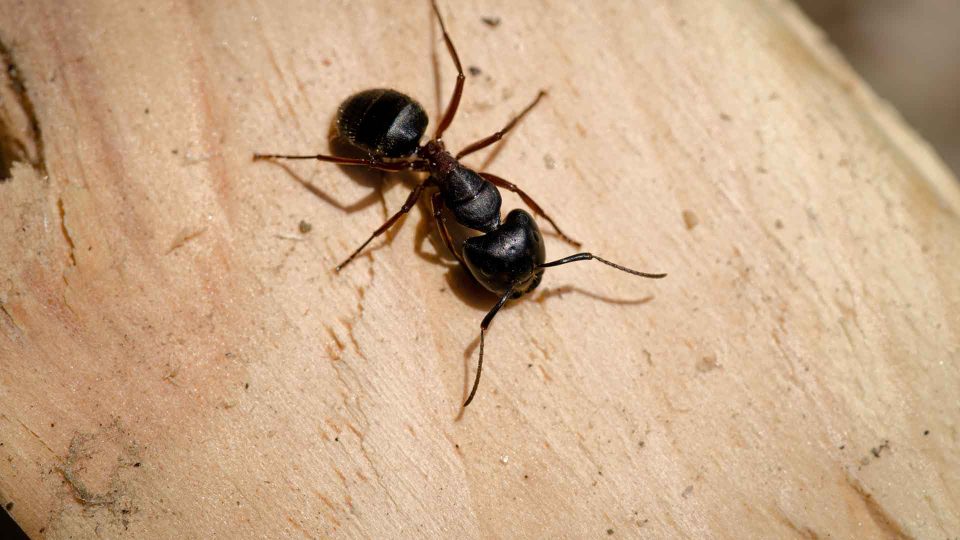Professional Carpenter Ant Removal Across Central New Jersey
Effective Removal & Long-Term Protection for Your Home or Business
Carpenter ants are more than just a nuisance — they can cause serious structural damage by hollowing out wood to build their nests. At Bee-Gone Termite & Pest Control, we specialize in removing carpenter ants from homes and businesses throughout Monmouth, Ocean, Union, and Middlesex Counties — including towns like Middletown, Holmdel, Freehold, and Toms River.

Signs You Might Have Carpenter Ants
Early detection is key to preventing costly repairs. Common signs include:
-
Large black ants (¼ to ½ inch) spotted inside or outside
-
Sawdust piles (frass) near windows, baseboards, or attic areas
-
Faint rustling noises in walls or ceilings, especially at night
-
Hollow-sounding or weakened wood around decks, doors, or beams
-
Tiny holes or tunnels in woodwork or structural elements
Our Targeted Treatment Process
We use a strategic, science-backed approach to eliminate carpenter ants and prevent future infestations:
-
Thorough Inspection – We locate nests indoors and outdoors, identifying all problem areas.
-
Customized Treatment Plan – We apply EPA-approved products safely and precisely based on the infestation’s location and severity.
-
Ongoing Monitoring – Follow-up services ensure the ants are completely removed and entry points are sealed.
-
Preventive Recommendations – We help you keep them out for good with expert guidance on sealing and repairs.

Why Choose Bee-Gone for Carpenter Ant Removal?
✅ Over 40 Years of Local Experience
✅ Licensed Technicians Serving Central NJ
✅ Safe, Environmentally Responsible Methods
✅ Residential & Commercial Expertise
We’re proud to be a trusted name in pest control from Colts Neck to Old Bridge and from Red Bank to Edison. Whether you're dealing with an active infestation or want to take preventive action, we're ready to help.
Don’t Let Carpenter Ants Damage Your Property
Carpenter ants work quietly but can leave behind expensive damage if ignored. Let the professionals at Bee-Gone Termite & Pest Control inspect your home or business today.
